Germany: EU's Decision On ArvanCloud Sanctions Under Review
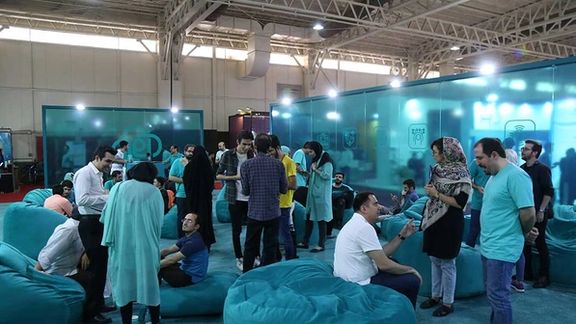
The German Ministry of Foreign Affairs spokesperson has told Iran International that the case of removing the Iranian firm ArvanCloud from EU's sanctions list in under review.

The German Ministry of Foreign Affairs spokesperson has told Iran International that the case of removing the Iranian firm ArvanCloud from EU's sanctions list in under review.
The firm was sanctioned in 2022 amid anit-government protests for its role in Iran's Internet censorship.
"The case is currently under review by the European Court of Justice. We are unable to confirm any decision by the EU to lift sanctions against ArvanCloud," stated the foreign ministry.
Iran International reported earlier this week that the European Union plans to delist ArvanCloud. However, according to a source close to European diplomats, the decision awaits confirmation.
ArvanCloud has contested its sanctions by filing a complaint with the European Court of Justice and exerting pressure on European governments through political channels. Concurrently, the company announced the termination of its contract with the Ministry of Communications and Information Technology of the Islamic Republic of Iran.
Insiders revealed that ArvanCloud's international supporters claim that the company is provided millions of Iranian citizens with access to a free internet during the Woman, Life Freedom protests in 2022-2023. This purported contribution may have influenced the EU's decision to reconsider sanctions against ArvanCloud.
Iran's history of internet censorship, which extends to social media platforms and traditional media outlets, underscores the significance of ArvanCloud's role.
Since 2002, Iran has systematically blocked tens of thousands of websites. With the emergence of social media, it extended its censorship to platforms like Facebook, Twitter (X), and YouTube. Additionally, traditional media undergoes extensive censorship, encompassing books and films, with restrictions based on Islamic beliefs and political content.
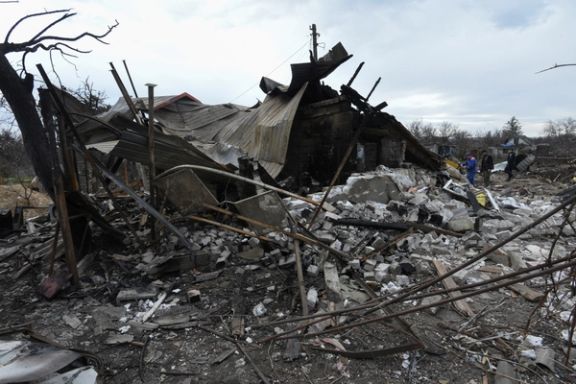
Ukraine's Air Force disclosed that Russian forces conducted attacks overnight, launching four missiles into eastern Ukraine and launching 12 Iranian-made Shahed drones across the country.
According to Ukrainian authorities, nine of the drones were successfully intercepted and shot down in various regions, including Dnipropetrovsk, Kherson, Odesa, and Poltava. Fortunately, there were no immediate reports of casualties resulting from these attacks.
The recent escalation comes amidst a sustained air-strike campaign by Russia, targeting Ukraine's energy sector. Over the past week, Russian forces have fired a total of 190 rockets, 140 Shahed drones, and 700 anti-aircraft missiles, leading Ukrainian President Volodymyr Zelenskiy to denounce it as a "dramatic increase in Russia’s air terror."
The intensification of Russia attacks comes after months of inaction by the US Congress to renew military assistance to Ukraine.
Simultaneously, Russian forces are intensifying ground offensives, engaging in 72 combat clashes in the eastern Donetsk and Luhansk provinces within the last day alone, as reported by the Ukrainian military's daily bulletin on Saturday.
Despite facing significant pressure, Ukrainian forces managed to repel numerous Russian assaults near strategic cities such as Avdiyivka, Bakhmut, Lyman in Donetsk, and Bilohorivka in Luhansk.
Meanwhile, Iran's involvement in supporting Russia's military actions against Ukraine has drawn international scrutiny. Since mid-2022, Iran has supplied Russia with more than a thousand Shahed UAVs, extensively utilized in targeting civilian infrastructure and cities in Ukraine.
Earlier this month, British Defense Secretary Grant Shapps accused Iran of providing Russia with ballistic missiles for use in the conflict, condemning Iran's negative influence not only in the Middle East but also in Europe.
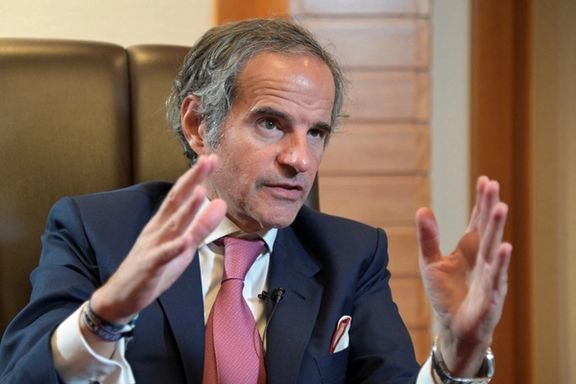
The UN nuclear watchdog cautions that without improved transparency on Iran's nuclear program, it cannot assure its peaceful nature, echoing fears of repercussions akin to the Iraq War.
In a Friday interview with PBS, International Atomic Energy Agency (IAEA) Director General Rafael Mariano Grossi expressed concern over Iran's advancements in its nuclear program alongside restrictions placed on IAEA monitoring activities.
Grossi emphasized that without full Iranian cooperation, the agency cannot verify that its program is peaceful. The lack of visibility would be a major setback, similar to the situation during the late 1980s and 90s in Iraq.
Iraq's lack of cooperation with UN inspections fueled international isolation and ultimately led to the 2003 US-led invasion. While Iraq had pursued WMD programs from the 1960s to 1990s, it declared their destruction in the 1990s. However, concerns arose under US President George W. Bush and UK Prime Minister Tony Blair that these programs continued. The UN Security Council demanded full Iraqi cooperation with inspections, but the US viewed Iraq's actions as insufficient and cited this as justification for war. Despite President Bush's stated goals of disarming Iraq, ending Saddam Hussein's support for terrorism, and liberating its people, a later US Senate report revealed significant inaccuracies in pre-war intelligence regarding Iraqi WMDs.
Tacitly referring to the US-led invasion of Iraq, Grossi said that the world earned a harsh lesson then, and repeating it would be in no one's interest, least of all Iran. "Shutting inspectors out; telling inspectors to go away is never, never, a good idea,” he said.
In September 2023, Iran withdrew the designation of several inspectors assigned to conduct verification activities in Iran under the Non-Proliferation Treaty Safeguards Agreement. Head of the Atomic Energy Organization of Iran (AEOI), Mohammad Eslami, justified Tehran's decision by claiming that those expelled had a history of"extremist political behavior".
Grossi emphasized that the general direction of Iran’s nuclear activities is "a trend of increase of nuclear material and it has reached a very, very high level,” and that the issue is “very complex.” Beyond enrichment levels, “which is very important because that’s how nuclear weapons are made,” the key concern is the declining access for IAEA inspectors to fully monitor Iran's activities. He added that the IAEA is in Iran but "we are not inspecting at the levels and with the depth that we should be given the nature of that program.”
In February, Grossi had said that Iran is enriching at an elevated rate of around 7 kg of uranium per month to 60% purity. Enrichment to 60% brings uranium close toweapons grade and is not necessary for commercial use in nuclear power production. Iran denies seeking nuclear weapons, but no other state has enriched to that level without producing them.
Elsewhere in his Friday interview, Grossi also described the 2015 nuclear deal between Iran andworld powers as an “empty shell.” “There is no diplomacy, there is no conversation and yet again the IAEA is the only link that provides some visibility of what's happening there.”
Grossi implied that reviving the deal – officially known as the JCPOA – may not be the best plan of action now, noting that the 2015 agreement was based on specific technologies and capabilities but nearly a decade later, Iran has rapidly advanced its program. They now possess faster, more efficient centrifuges and facilities producing centrifuge parts. Additionally, Iran is developing new sites for nuclear activities.
“The spectrum of that agreement is clearly superseded at this point,” he said.“The Iran of 2015 is not the Iran of 2024.”
A report published earlier in March found that Iran continues to make progress in constructing a deeply buried nuclear site near Natanz. The report by the Institute for Science and International Security discovered that based on analysis of satellite imagery, Iran has completed construction of tunnels related to the site and is working on underground rooms that could hold enrichment halls.
The site may be invulnerable to military strikes, allowing Tehran to successfully produce weapons-grade uranium for a nuclear weapon using material diverted from other facilities, Washington-based the Foundation for Defense of Democracies (FDD) said.
“This Iranian nuclear weapons-making facility could be impervious to Israeli andperhaps even American bombs. The time is quickly running out, as Iran moves into a zone of nuclear immunity, to deny the regime permanent use of this deadly site,” said FDD CEO Mark Dubowitz.
Richard Goldberg, an FDD Senior Advisor, said, “If Tehran is allowed to complete this facility and move its enrichment infrastructure inside, we will enter a new and potentially irreversible era of the Iranian nuclear threat. Completion of this facility must be added to the list of red lines for the United States and its allies.”
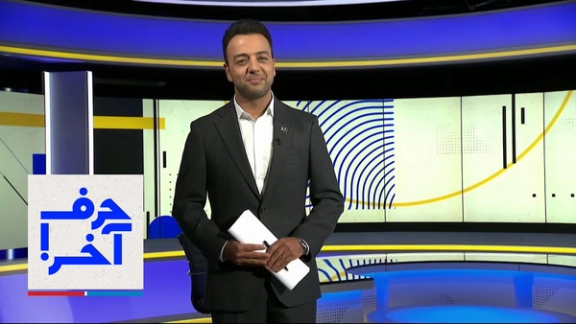
In the wake of an attack on Pouria Zeraati, a TV anchor at Iran International, the Iranian embassy in London has denied any involvement in the incident.
Zeraati, a prominent journalist, was stabbed outside his residence in Wimbledon, south London, but is reportedly in stable condition following the assault.
The London-based broadcaster, Iran International, known for its independent coverage of Iran, has been a target of Tehran's hostility. The attack on Zeraati has raised concerns after past threats by the Iranian regime against the channel.
Adam Baillie, a spokesman for Iran International, described the attack as "hugely frightening" but assured that Zeraati is recuperating well in the hospital. Baillie emphasized that Zeraati's profession as a journalist has made him and his colleagues vulnerable to threats and aggression from Iranian authorities.
While the motivation behind the attack remains unclear, counter-terrorism police are leading the investigation, given Zeraati's recent threats directed at UK-based Iranian journalists.
Baillie highlighted that Iran International, along with BBC Persian, has faced escalating threats from the IRGC and elements associated with the Tehran regime.
Asked what he believed lay behind the attack, Baillie told BBC Radio 4: “We can’t say. The fact that counter-terrorism is leading the investigation probably speaks for itself.
“Along with our colleagues at BBC Persian, Iran International has been under threat, very heavy threats, for the last 18 months since the IRGC said ‘we’re coming for you’, which they have consistently repeated.”
The incident comes in the wake of previous attempts to intimidate and silence journalists associated with Iran International. In January, the Foreign Office imposed sanctions on members of the IRGC's Unit 840 following revelations of plots to assassinate two of the channel's presenters in the UK.
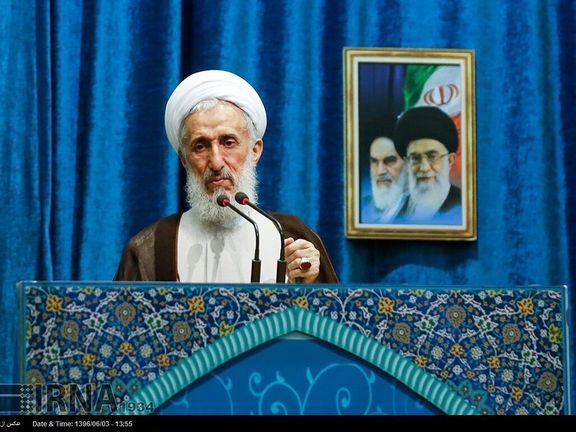
The interim Friday Imam of Tehran and senior advisor to the chief justice, who was involved in a recent corruption scandal, has issued an apology to Supreme Leader Ali Khamenei.
In a video message released on Friday, Kazem Sedighi extended his apologies to the "esteemed leader," alluding to Khamenei. The cleric, however, did not apologize to the people, instead urging them to "pray for him."
Sedighi admitted to negligence and mistakes on his part without giving further details. The apology came in the wake of mounting pressure, notably after Imam Sadiq University in Tehran, which is close to regime hardliners, removed Sedighi's name from its list of speakers for Ramadan ceremonies.
Sedighi, who has earned the moniker "the weeping sheikh" from critics, faced accusations of appropriating public land after documents surfaced indicating the illegal seizure of land in northern Tehran. Initially denying the allegations and attributing his signature on the documents to forgery, Sedighi's defense crumbled with the emergence of further evidence.
Recent revelations unveiled the transfer of a 4200-square-meter garden belonging to a seminary, worth an estimated $20 million, to an entity controlled by him and his family. In his apology, Sedighi disclosed that the land had been returned to the seminary.
The scandal has sparked widespread outrage, particularly on social media, reflecting the growing discontent over corruption within influential circles. Sedighi's apology, while addressing the Supreme Leader, leaves unanswered questions regarding his accountability.
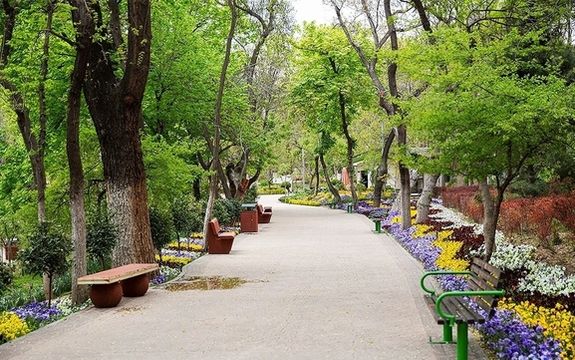
Controversy has ignited in Iran over a government plan to construct mosques in Tehran's parks, with critics denouncing the project as either a misuse of public funds or driven by hidden motives.
Public outrage erupted as images and reports circulated online revealing that the municipality of Tehran had initiated the construction of a mosque in Qeytarieh Park, located in northern Tehran. The construction involved fencing off a section of the park and cutting down trees, sparking widespread backlash.
Iran International has received scores of comments by Iranians who emphasized that parks are the first and most accessible places for protesters to gather in neighborhoods, prompting the government to replace them with mosques, seen as potential outposts for deploying security forces to crush future demonstrations.
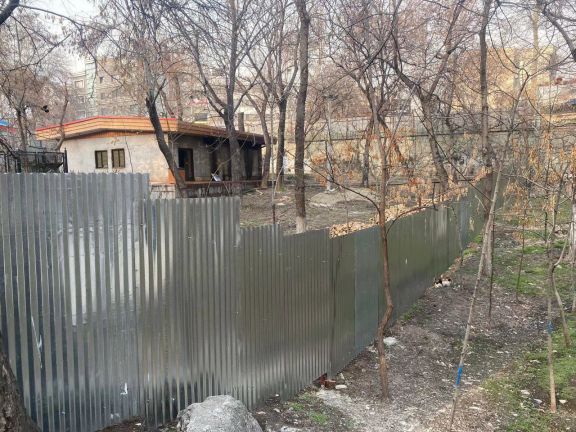
Once seen as propaganda tools, Iranian mosques have undergone a shift in function amid declining attendance. During recent protests, these mosques reportedly served as staging grounds for security forces cracking down on demonstrations. Mosques additionally function as recruitment centers for the Basij, the IRGC's volunteer paramilitary force that played a key role in suppressing the protests.
Citizens have launched an online petition expressing their dismay and calling for intervention from the head of the Administrative Court of Justice, the head of the Judiciary, and the president to halt the project. The petition highlighted Tehran's severe air pollution and emphasized the urgent need for more green spaces and trees in the capital.
They pointed out that there are already several mosques in the area, many of which are underutilized. Additionally, the project was criticized as a misuse of public funds, further fueling public opposition.
After several days of silence from city officials, Majid Ghafouri Rouzbahani, an assistant to the mayor of Tehran, finally confirmed the construction of a "magnificent and splendid mosque" in Qeytarieh Park. He justified the project by citing the lack of religious facilities in the upscale Qeytarieh neighborhood and the demand from religious residents.
Adding fuel to the fire, Mayor Alireza Zakani also came out in defense of the decision and “declared plans to build mosques in all of the capital's parks, not just Qeytarieh.”
Zakani’s announcement was also echoed by the spokesperson for the Tehran Municipality, who said Friday that "The mosque in Qeytarieh Park will not be the first or last mosque in Tehran's large parks. Acknowledging the low number of mosque goers, he insisted that “The fact that some existing mosques have few worshipers or that the worshipers are of a particular age group (the elderly) is not a good reason to stop developing mosques."
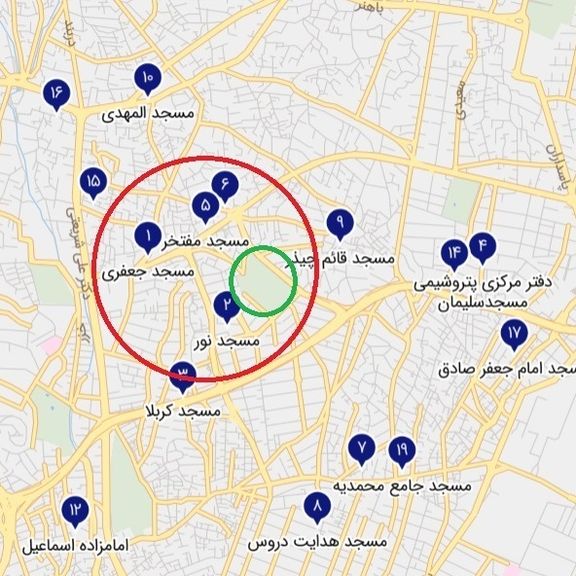
Last year, a senior Iranian cleric, Mohammad Abolghassem Doulabi, revealed that 50,000 out of 75,000 mosques nationwide had been closed due to a significant decline in attendance. Doulabi, a liaison between President Ebrahim Raisi's administration and the country's seminaries, expressed concern over the implications of low mosque attendance for a state founded on Islamic principles. In December, Mohammad Mehdi Esmaeili, the Minister of Culture and Islamic Guidance, raised alarm over the fall in mosque attendance across the country.
The government's push to build more mosques, many of which are likely to remain empty, has further stoked public outrage, dragging politicians into a heated debate.
Reformist commentator Abbas Abdi took a jab online, suggesting the mosque project is a sweetheart deal for regime insiders who will secure construction contracts. "If you can't make young people pray, it's okay. There's an easier way that also benefits your contractors. Build as many mosques as you can."
Conservative journalist Ali Gholhaki criticized the plan to build the needless mosque in Qeytarieh Park that is surrounded by at least five mosques and one Husayniyya (a Shiite congregation hall) as well several smaller prayer sites. He labelled it as a bureaucratic vanity project with no benefit to residents, saying it only has “a report-padding function.”
Prominent Iranian sociologist Mohammad Fazeli challenged Tehran's mayor: "Prove that your mosque construction plan will promote prayer."
"Mixing ideology, coercion, and money has birthed a dangerous level of politics and foolish actions,” he stated.
Mohammad Mohajeri, a conservative politician and a critic of the current ultraconservative political establishment, slammed the decision as “a form of obstinacy” on the part of the government.
“Qeytarieh and neighboring Chizar are old, religious communities in Tehran with ample mosques," he said. “The current population doesn't require a new one. And if they did, they have the means to expand existing facilities or build a new mosque themselves, without government or municipal intervention."
Cleric Saeed Lavasani, himself a former prayer leader, said, “Building mosques is a community act of faith, not a municipal duty. The city should focus on its real job: building parks, constructing highways, developing urban systems, optimizing routes -- areas where they seem to be falling short.”